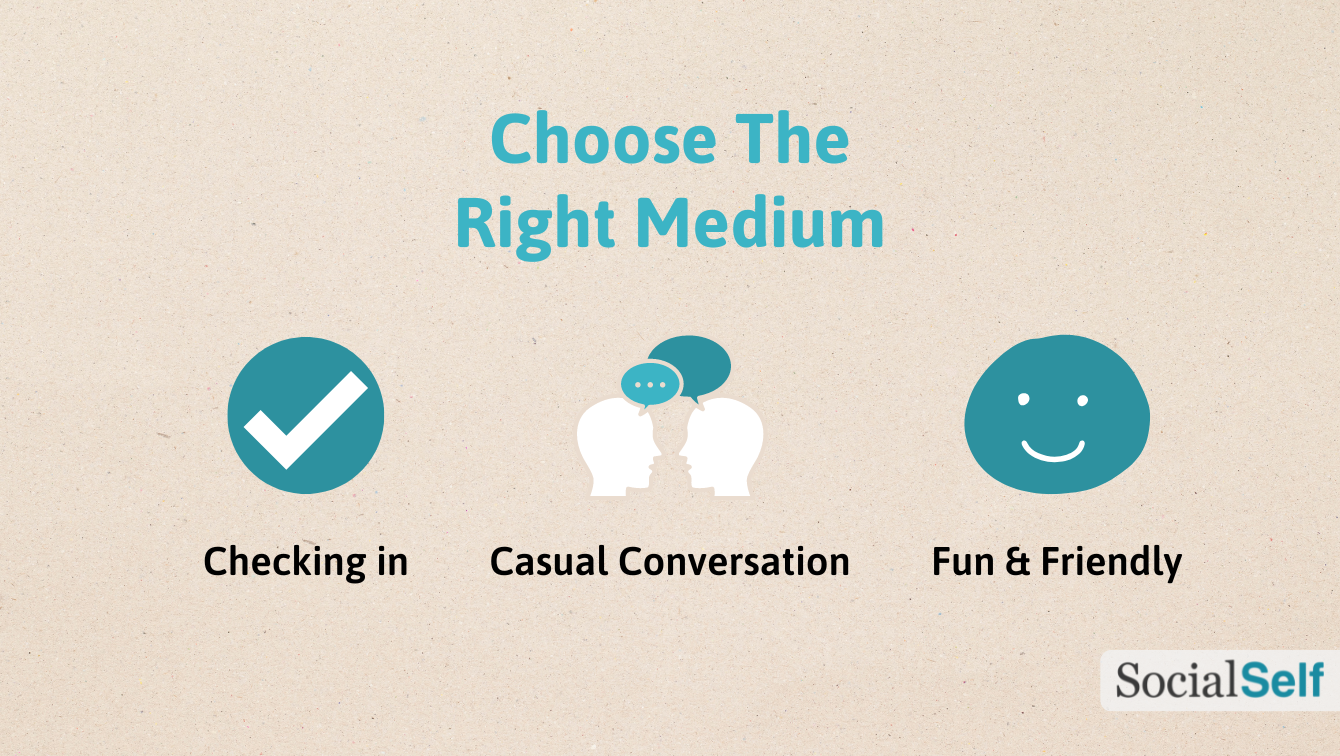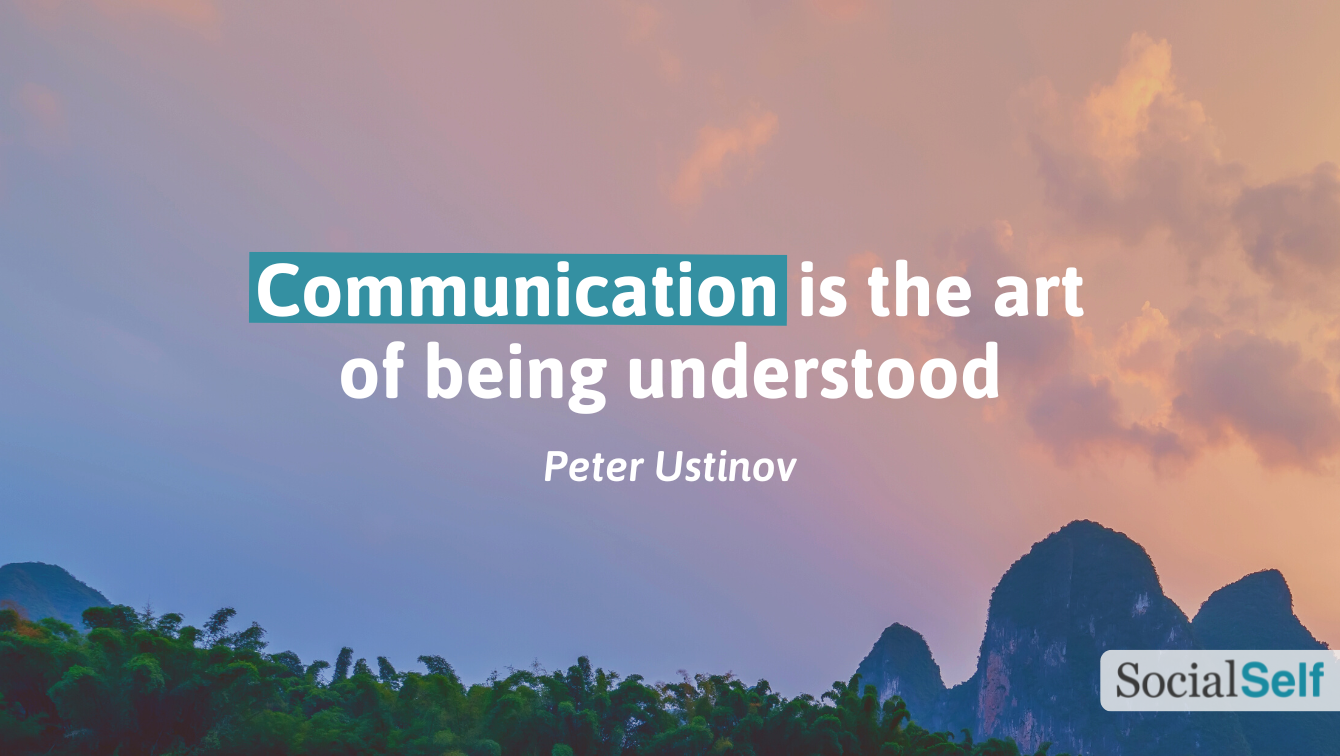Good communication is an open channel between you and another person that allows closeness, connection, and understanding. Poor communication in a relationship closes off that channel, which can lead to conflict, disconnection, and misunderstandings.[1][2][3] Learning how to communicate more effectively will help you form and maintain close relationships, keeping them close, healthy, and strong.[4]
This article will provide tips on how to recognize good and bad communication patterns and outline 15 ways to improve communication in a relationship.
Sections
- Signs of good and poor communication
- How to improve communication in a relationship
- Common questions
Signs of good and poor communication
Many relationship problems are either caused by poor communication or are effects of a lack of communication in a relationship. For this reason, strained, tense, or distant relationships are the most obvious sign of poor communication in a relationship.
It’s normal for family, friends, and couples to sometimes disagree or fight, but frequent arguments or misunderstandings may be signs of a more global breakdown in communication.
In addition to relationship problems, other common signs of good and poor communication include:[4]
| Signs of Good Communication Skills | Signs of Poor Communication Skills |
| Clear and concise communication: Able to make their point in a clear and concise way, without rambling on or adding unnecessary details | Undercommunicates/overcommunicates: May communicate too much or not enough, without being clear or emphasizing the right points |
| Self-aware and aware of others: Considers their own feelings, wants, and needs and also those of whoever they’re talking to | Self-conscious or oblivious to others: Fails to either consider their own feelings, wants, and needs or those of others |
| Intentional and careful with words: Chooses their words carefully and in ways most likely to convey the message they want | Often misspeaks and is misunderstood: Makes false, incomplete, or accidental statements that are misunderstood |
| Takes turns talking and listening: Balances conversations by taking turns talking and letting others talk; is also a good listener | Avoids talking or doesn’t listen: Either talks too much or doesn’t talk enough or fails to really listen when others speak |
| Is polite and conscientious: Remains polite and respectful to others and considers their feelings, even during conflicts, arguments, or disagreements | Offends and sends unintended messages: May offend others with their words or body language or sends the wrong message to other people, especially when upset |
How to improve communication in a relationship
It is possible to fix communication in a relationship, but it requires the active participation and effort of all people involved. Being more tactful, direct, clear, and receptive are all essential for people trying to communicate more effectively.[2][4] Paying attention, adjusting your approach based on nonverbal cues, and remaining open-minded are also keys to good communication.
Below are 15 strategies to improve communication skills in a relationship:
1. Choose the right medium
Choosing the right medium to communicate is a simple but important step to improve communication in a relationship.[2]

Here are some tips to help you figure out the right medium for your conversation:[2][5][6]
- Email: Emails are also seen as more professional than texts. It may be better to use this medium with colleagues and coworkers. An email can also be less overwhelming than a long or detailed text, which is harder to read and refer back to when sent in a text. Emails are also less intrusive than texts, making them better for late-night, weekend, or holiday communication.
- Texts: Use texts to send short, casual messages to people, like when you’re just checking in on a friend or asking how your boyfriend’s day is going. Avoid using texts for important, high stakes, or difficult conversations, as miscommunication is more likely to occur than when talking in person or on the phone.
- Phone calls: If you need to discuss something personal, sensitive, or important with someone you aren’t able to meet up with, consider a phone call (with or without video). Regular calls can also be a great way to stay in touch with friends, family, or a long-distance girlfriend or boyfriend.
- In-person conversations: Some conversations are best to have in-person, especially if they’re really important, formal, or sensitive in nature. Talking in person is better than talking on the phone because it allows you to see a person’s body language, which provides information about what they’re thinking and feeling.
2. Choose a suitable place to talk
When you’re trying to spend quality time with someone, it’s a good idea to pick a time and place that’s conducive to talking.[2] For example, don’t try to catch up with an old friend you haven’t seen in years over a 30-minute lunch break, and don’t choose a noisy or crowded cafe or bar to share big news with your family.
Instead, be intentional. Suggest times and places that provide an opportunity for deep conversations and 1:1 time. If you need or want to talk with a loved one about something private, make sure to choose a place where you’re unlikely to be disturbed or overheard. For example, suggest taking a walk together or meeting at your place or theirs to avoid noisy crowds or nosy people watchers.
3. Open up more
Not all conversations are equal in terms of helping you feel close and connected to another person. For example, sticking to small talk or safe topics probably won’t help you form a deep bond with someone you’re getting to know. If you want to build trust or get to know someone and connect with them on a deeper level, opening up and sharing is the best way to accomplish this goal.[2]
Here are some ways to open up more with people you want to form a deeper relationship with:
- Be willing to share personal information and stories to let people get to know you.
- Be more expressive to show interest, enthusiasm, or emotions with someone.
- Talk about topics or things that really matter or are important to you.
- Filter less and say more of what’s on your mind to show more of your true self.
- Talk about your feelings for someone to create a chance to connect more deeply.
4. Know your goal for a conversation
Almost all communication has a goal, but this goal isn’t always thought about beforehand. Knowing what you’re trying to accomplish will help to keep you on track during a conversation, avoiding tangents and off-topic discussions that can distract or derail you.[6] A clear goal also helps you communicate intentionally rather than accidentally miscommunicating.[6]
According to research, the four primary goals of communication are:[7]
1. To inform: giving information or instructions to someone
Tips on informing: Be specific, clear, and concise
2. To request: getting information or requesting help from someone
Tips on requesting: Be humble, considerate, and appreciative
3. To persuade: presenting an idea or plan to someone you hope will back you
Tips on persuading: Be open-minded, tactful, and respect boundaries
4. To Connect: building and maintaining a relationship with someone
Tips on connecting: Open up, be genuine, and show sincere interest in the person
5. Use active listening skills
A lot of people who want to improve their communication skills make the mistake of focusing too much on what they’ll say to someone without trying to become a better listener. Really listening to someone makes people feel seen, heard, and understood. This is a key step in forming a close connection with them.
The best listeners use active listening, which includes a set of skills that show others that you’re listening to them and care about what they’re saying. Below are some active listening skills you can use to improve your communication with someone:[8]
- Slow down and pause more to invite someone to open up and share.
- Reflect back what they said to you to show you’re listening to them.
- Ask a follow-up question to get more information or show interest.
- Use empathy to validate how they’re feeling or what they’re experiencing.
- Smile, nod, and use other nonverbal cues to show you care about what they’re saying.
6. Keep it short and sweet
When you are trying to communicate something, your point can get buried when you give too many details, go on long tangents, or talk too much. Being direct and concise makes it much easier for people to understand you.[2][4]

If you have a nervous habit of rambling on, try one of these techniques to keep your messages short and sweet:
- Choose your words carefully: Try crafting your message (written or spoken) in as few words as possible.
- Keep it plain and simple: Trying too hard to sound smart or eloquent can backfire, muddying your message and even making you come across as arrogant. Instead of using big words and jargon, opt for plain language that others understand.
- Make your point early on: Be direct and get to the point quickly. If you are trying to ask for a favor, beating around the bush or spending 10 minutes making small talk can annoy people or make them suspicious of your agenda. Respect their time by cutting to the chase.
If you’re not sure whether you talk excessively or not, this article on signs you talk too much can be helpful.
7. Address problems when they’re still small
Small issues and annoyances can build up and become bigger conflicts when they aren’t addressed, which is why it’s good to talk about problems when they first arise. Addressing issues early on can keep them from becoming bigger problems that negatively affect your relationships.[6]
If you don’t know what to say or how to have a difficult conversation with a friend, colleague, or someone you’re dating, try one or more of these tips:
- Approach the topic gently by saying something like, “Hey, I just wanted to mention” or “one thing…” when you need to address a small problem or issue with someone.
- Use an “I-statement” to address something that bothers or upsets you without making it feel like an attack by saying how you feel and what you’d like the person to do.
- Avoid attacking someone by giving them the benefit of doubt. Try saying something like, “I’m sure you didn’t mean it this way but…” or “You couldn’t have known this…” to gently confront someone without being too harsh.
7. Resist urges to get defensive
Defensiveness shuts down lines of communication, making the conversation less productive.[2] It’s sometimes possible to prevent this from happening by remaining open instead of putting your guard up. When you have an urge to shut down, say something mean, or argue your point, try not to act on it. Instead, build the self-discipline to remain non-defensive by:[2][4][7]
- Stopping to think before responding: Your first instincts aren’t always right, especially when strong feelings are mixed in. Avoid saying or doing things that might hurt the other person or your relationship with them by pausing to think before reacting. Taking a quick bathroom break, a few deep breaths, or even a five-second pause can help you calm down, center yourself, and respond in more effective ways.
- Adopting a curious mindset (vs. a critical mindset): A curious mindset is open, humble, and interested, unlike the critical mind, which can be closed, defensive, and assuming. Reminding yourself to be curious changes your stance in ways that make a positive interaction more likely to occur.
- Seeking to understand (vs. seeking to change): When you seek to understand someone’s point of view instead of changing it, you can go into any conversation without an agenda. This makes it less likely that the other person will become defensive and also makes you more likely to learn or gain something from the conversation.
- Finding common ground (vs. looking for differences): Most people connect, bond, and relate over their similarities, not their differences. That’s why looking for common ground with someone often leads to more positive, feel-good interactions with others.
You also might like to read this article on healthy ways of expressing emotions.
8. Stay in touch over text or online
Relationships need to be maintained through regular contact. It may not be possible to see your loved ones as often as you’d like to, but there are lots of other ways to stay in touch with friends, family, and loved ones. Coordinating group chats, scheduling regular Zoom or Facetime events, or connecting on social media are all great ways to avoid losing touch with the people you care about.
9. Get clarification when something isn’t clear
Miscommunications sometimes happen, but you can make them less frequent by getting clarification when something isn’t clear to you. For example, instead of guessing what someone meant by a text or comment, ask them.

You could do this easily by saying something like, “What do you mean?” or even “LOL I’m so lost right now…”. Getting clarification can also help in professional settings, where it may be even more important to make sure you’re on the same page with people.
10. Use feedback and social cues as a guide
Great communicators constantly adjust their communication in response to real-time feedback and social cues. When you learn how to pick up on social cues and nonverbal communication, you can use them to guide your conversation.[3] You can use both verbal and nonverbal feedback to help you communicate in clear, effective, and respectful ways.[1][2]
Here are some basic tips for picking up on social cues and nonverbal feedback:[3]
- Blank stares: May indicate a person is confused, distracted, or not on the same page.
- Poor eye contact and shifting in their seat: Can indicate discomfort or nervousness.
- Intense eye contact: Can imply the person expects or wants something from you.
- Topic shifting: May be an attempt to avoid conflict or uncomfortable conversations.
- Rapid, high-pitched speech: Often shows excitement, urgency, or panic.
- Looking at watch/phone/computer: Sometimes a sign of boredom; may be a signal to end the conversation.
11. Use body language to express yourself
Much of our communication is nonverbal. Body language, expressions, and gestures help you communicate effectively with others. Being more expressive also shows enthusiasm, which keeps people interested and engaged in a conversation.[1][2][4]
Here are some examples of how to use body language to communicate better in a relationship:
- Change your voice tone to emphasize certain words or show emotion
- Use gestures and facial expressions to demonstrate sincerity
- Lean in and make good eye contact to show interest in what someone says
12. Foster positive interactions
Positive interactions foster feelings of trust, intimacy, and connection between people. Positive interactions may be even more crucial for couples that fight a lot or for family or friends who had a falling out. Positive interactions are ones that help you bond with someone and can help to heal a broken or damaged relationship. You might get some inspiration from this list of things you can do together as a couple.
Here are some tips on how to increase positive interactions with people closest to you:
- Choose feel-good topics of conversation like funny stories, fond memories, or a shared hobby or passion.
- Find points of agreement with the other person and focus on these more than you focus on differences in opinion.
- Create friendly vibes by showing support or empathy, validating someone’s feelings, or giving them a sincere compliment.
13. Fight fair
Being disrespectful to someone in a conversation does a lot of damage to your relationship, even when you apologize or try to take back something mean you said. The best way to prevent breakdowns in communication is to communicate respectfully, even when you’re upset with someone.
Being tactful is also important. Tact involves choosing your words wisely and being considerate of other people’s feelings. Having some ground rules for these conversations can help you stay on track. Some examples of ground rules include:[2]
- Take turns talking and listening: No interrupting or talking over someone
- No personal attacks: No name calling or attacking someone’s character
- Keep it civil: No shouting, swearing or threatening the person or relationship
- One thing at a time: Focus on one issue at a time, no dredging up the past
- Know when to call a time-out: Take breaks if things get too heated or personal
14. Schedule times to talk
While it might sound strange to schedule time to talk with your roommate, family member, or spouse, it’s sometimes the only way to ensure conversations happen. Otherwise, busy schedules or long workdays can leave you feeling dissatisfied and disconnected from each other.
Setting aside regular times to catch up, talk about something important or have deep conversations is a great way to prioritize the people who matter most to you. Make the most out of your scheduled time with someone by opening up to them instead of just making small talk.
15. Be more assertive
Assertiveness is considered the gold standard when it comes to communication, making it a must-have skill for any aspiring communicator. Assertive communication involves being clear and direct while also being respectful of the other person. People who communicate assertively are able to share their thoughts, feelings, wants, and needs, but they do so in ways that respect other people.
Here are some examples of how to be more assertive when you communicate:[2][4]
- Learn to set boundaries with people and say no without disrespecting them.
- Be more honest and open about your thoughts and feelings.
- Ask for things you want or need instead of assuming they already know.
- Own up to and apologize for your mistakes without making excuses.
- Use “If…Then” statements to share your plans with others.
Final thoughts
Communication skills help you build and maintain the relationships that matter most. Improved communication can reduce conflicts and rebuild trust, intimacy, and connection with people you care about.
Being more open, direct, and expressive helps you communicate clearly and effectively. Active listening, non-defensiveness, and open-mindedness make you more approachable.[1][2][4] Combined, these techniques provide a starting point for how to communicate better with the people you care about.
Common questions
Why is communication in relationships important?
People use both verbal and nonverbal communication to connect, relate, and bond with each other. It isn’t possible to build and maintain close and healthy relationships without good communication.
Can communication in a relationship be fixed?
Unhealthy communication patterns can be changed and improved as long as everyone involved is willing to put in the time and effort. While the skills needed to fix poor communication are relatively simple and easy to understand, applying them can be difficult.
Why do I struggle to communicate with my partner?
Communication problems in romantic relationships are common. These problems can stem from a number of issues, including unresolved problems in the relationship, personal insecurities, and bad communication habits learned early on in life.
What does effective communication really mean?
Effective communication is direct, clear, honest, and respectful. It is used to help people relate, connect, and understand one another. Effective communication helps people build healthier relationships, resolve conflicts, solve problems, and achieve shared goals.
Is there such a thing as over-communication?
While many relationship problems can be traced back to under-communication, it’s also possible to over-communicate. Oversharing, talking too much, or giving too much information can overwhelm someone, making them less likely to receive all of the information.




